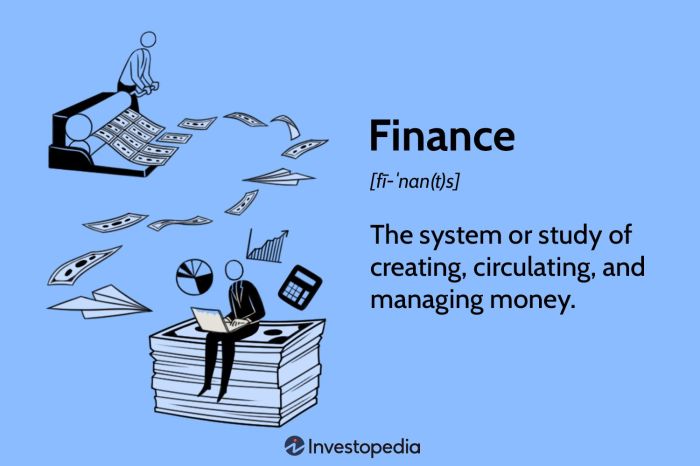Embarking on the Finance 3000 Mizzou Exam 1, we delve into the captivating world of finance, uncovering its fundamental concepts and equipping ourselves with the knowledge and strategies to excel in this crucial assessment.
Prepare to navigate the exam’s format, delve into the key concepts, and discover effective study techniques. This comprehensive guide will empower you to approach the exam with confidence and achieve your academic goals.
Finance 3000 Exam 1 Overview
Finance 3000 Exam 1 serves as a foundational assessment of your understanding of core financial principles and concepts. The exam aims to evaluate your knowledge and critical thinking abilities in key areas of finance.
Finance 3000 Mizzou Exam 1 is just around the corner, and I’m starting to feel the pressure. I’ve been studying hard, but I still have a lot of material to cover. I’m hoping to do well on this exam, so I can move on to more advanced topics in finance.
In the meantime, I’ve been looking into other study materials, like the Mehlman Medical Step 2 CK review course. I’ve heard good things about it, so I’m thinking about giving it a try. Hopefully, with a little extra preparation, I’ll be able to ace Finance 3000 Mizzou Exam 1.
Exam Format
The exam is typically administered online or in a proctored setting and consists of a combination of multiple-choice questions, short answer questions, and case studies. The duration of the exam is typically around 2-3 hours.
Grading Criteria
The grading criteria for the exam are determined by the instructor and may vary slightly. Generally, your performance is evaluated based on the accuracy and completeness of your answers, as well as your ability to demonstrate a sound understanding of the concepts.
Exam Coverage
The exam covers a comprehensive range of topics, including:
- Time value of money
- Capital budgeting
- Risk and return
- Bond and stock valuation
- Capital structure and dividend policy
Study Resources and Preparation Strategies

To excel in Finance 3000 Exam 1, it’s crucial to equip yourself with the necessary resources and employ effective preparation strategies. This involves identifying essential materials and adopting proven study methods to optimize your learning.
Essential Resources
- Textbooks:
- Fundamentals of Corporate Finance by Brealey, Myers, and Allen
- Financial Management: Theory and Practice by Brigham and Houston
- Lecture Notes:Attend lectures diligently and take comprehensive notes. These notes will serve as a valuable reference during your preparation.
- Online Materials:Utilize the course website, Blackboard, and other online platforms to access additional resources such as practice questions, lecture recordings, and supplementary materials.
Proven Study Methods
- Active Recall:Engage in active recall by testing yourself on the material regularly. This involves retrieving information from memory without looking at your notes. Use flashcards, practice questions, or self-quizzes to challenge your understanding.
- Spaced Repetition:Review the material at increasing intervals to strengthen your memory. Start by reviewing the material soon after learning it, then gradually increase the time between reviews. This helps solidify the information in your long-term memory.
- Concept Mapping:Create visual representations of the concepts you’re studying. Draw diagrams, mind maps, or flowcharts to connect different ideas and see how they relate to each other.
Time Management Techniques
- Plan a Study Schedule:Allocate specific time slots for studying and stick to them. Break down the material into smaller chunks and tackle them one at a time.
- Prioritize Tasks:Focus on understanding the core concepts first. Identify the most important topics and allocate more time to them.
- Take Breaks:Regular breaks are essential to maintain focus and prevent burnout. Step away from your study materials for short intervals to clear your mind and return refreshed.
Exam Content and Key Concepts

This exam will assess your understanding of fundamental concepts in financial management, various financial instruments, and the role of financial markets and institutions in the economy. A strong grasp of these concepts is crucial for success in the field of finance.
Time Value of Money
The time value of money (TVM) is a fundamental concept that recognizes the changing value of money over time. Understanding TVM is essential for making sound financial decisions. It involves concepts such as present value, future value, and discounting.
Capital Budgeting
Capital budgeting involves evaluating and selecting long-term investment projects. It helps businesses make informed decisions about allocating capital to projects that will maximize shareholder value. Key concepts include net present value (NPV), internal rate of return (IRR), and payback period.
Risk Management
Risk management is a crucial aspect of financial management that involves identifying, assessing, and mitigating financial risks. It helps businesses protect their assets and maintain financial stability. Common risk management strategies include diversification, hedging, and insurance.
Financial Instruments
Financial instruments are contracts that represent a financial asset, liability, or ownership interest. They facilitate the transfer of funds and risk between parties. Key types of financial instruments include stocks, bonds, and derivatives.
Role of Financial Markets and Institutions
Financial markets and institutions play a vital role in the economy by facilitating the flow of funds between investors and borrowers. They include stock exchanges, bond markets, and banks. Understanding their functions is essential for comprehending the financial system.
Sample Questions and Solutions

Practice questions and their solutions are crucial for reinforcing your understanding of financial principles. Below is a table featuring sample exam questions that cover key topics in Finance 3000 Exam 1.
Each question is accompanied by a detailed solution that demonstrates the application of concepts and helps you identify areas where further study is required.
Sample Questions
| Question | Solution |
|---|---|
| Calculate the future value of an investment of $1,000 earning 5% annual interest compounded monthly for 10 years. | Using the formula FV = PV
(1 + r/n)^(n*t), where PV is the present value, r is the annual interest rate, n is the number of compounding periods per year, and t is the number of years, we get FV = 1000
|
| A company is considering a project that requires an initial investment of $50,000 and is expected to generate annual cash flows of $15,000 for the next 5 years. Calculate the project’s net present value (NPV) using a discount rate of 10%. | Using the formula NPV =
-Initial Investment + Sum of Present Value of Cash Flows, we get NPV =
|
| A bond has a face value of $1,000, a coupon rate of 6%, and matures in 10 years. If the current market interest rate is 5%, calculate the bond’s price. | Using the formula Bond Price = (Coupon Payment / Market Interest Rate)
Coupon Rate, and n is the number of years to maturity, we get Bond Price = (60 / 0.05)
|
Exam Tips and Strategies

Taking an exam can be a nerve-wracking experience, but with proper preparation and effective strategies, you can manage your anxiety and perform well. Here are some tips and strategies to help you succeed on your Finance 3000 Exam 1.
Managing Exam Anxiety
- Prepare thoroughly:The best way to reduce anxiety is to feel confident in your preparation. Start studying early and make sure you understand the concepts thoroughly.
- Practice relaxation techniques:Deep breathing, meditation, or visualization exercises can help calm your nerves before and during the exam.
- Get a good night’s sleep:Sleep deprivation can impair your focus and memory, so make sure you get plenty of rest before the exam.
Effective Time Allocation, Finance 3000 mizzou exam 1
- Review the exam instructions carefully:Make sure you understand the time limit, the types of questions, and the grading scheme.
- Plan your time wisely:Allocate more time to questions that carry more weight or that you find more challenging.
- Don’t get stuck on one question:If you’re struggling with a particular question, move on and come back to it later.
Answering Different Types of Exam Questions
- Multiple-choice questions:Read the question carefully and eliminate any obviously incorrect answers. Guess if you have to, but only if you can eliminate at least two options.
- True/false questions:Make sure you understand the statement before answering. Look for s like “always” or “never” that indicate absolute statements.
- Short answer questions:Answer concisely and to the point. Use s and avoid unnecessary details.
- Essay questions:Plan your answer before writing. Use a clear and organized structure, and support your arguments with evidence.
Utilizing Resources
- Calculators:Use a calculator for numerical calculations, but make sure you understand the underlying concepts.
- Formula sheets:If allowed, use formula sheets to refresh your memory, but don’t rely on them completely.
- Other resources:Bring any other materials that are permitted, such as notes or textbooks, but use them judiciously.
FAQ Summary: Finance 3000 Mizzou Exam 1
What is the purpose of Finance 3000 Exam 1?
Finance 3000 Exam 1 assesses your understanding of fundamental financial concepts and your ability to apply them to real-world scenarios.
How can I effectively prepare for the exam?
Utilize the provided textbooks, lecture notes, and online resources. Implement active recall, spaced repetition, and concept mapping techniques. Manage your time wisely and prioritize studying key concepts.
What are some common exam question types?
Expect a mix of multiple-choice, short answer, and case study questions that test your comprehension and analytical skills.
How can I manage exam anxiety?
Practice relaxation techniques, such as deep breathing or meditation. Visualize success and focus on your strengths. Remember that preparation is key to building confidence.